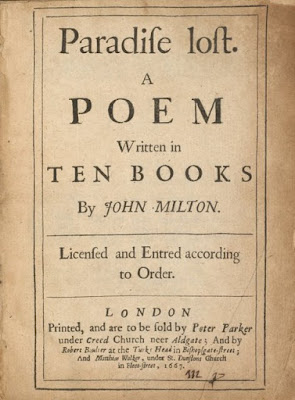Taking 'Paradise Lost' as a whole, one can see that the rules of classical epic as discussed by Aristotle are followed, to a large extent, by Milton.
(1) The action deals with a great subject, derived from the scriptures. It deals with the fall of man and to this all other episodes are related and subordinated.
(2) The action is entire, having a beginning, middle and an end.
(3) As all other epics, it has a hero, though there has been a controversy as to who it is.
(4) The style of 'Paradise Lost' has all the grandeur which the epic poem demands. Milton is the mighty mounted inventor of harmonies. The meaning of the words, the syntax, and the division of sentences constantly reminds the scholarly reader of classical writers. The opening sentence, the first lines of Satan's speech on looking at his surrounding, his words to Beelzebub, and the description of Satan's shield and spear—all these reflect Milton's grand style.
(5) In the tradition of Homer and Virgil, Milton states the theme of his poem in the very first lines.
Of Man's first disobedience, and the fruit
Of that forbidden tree, whose mortal taste
Brought Death into the world.
(6) In a typical fashion Milton begins the poem in the middle of the story. He begins by describing the state of the fallen angels.
(7) According to the classical convention established by Homer, Milton invokes the Muse to help him in his great task of writing the epic.
And chiefly thou O' spirit...
Instruct me, for thou knowest
(8) A roll call of the devils is given according to the classical convention. It can be compared with the catalogue of ships in Homer's 'Iliad'.
(9) A prominent convention of the classical epic is the use of similes, especially the elaborate and extended type. There is no dearth in 'Paradise Lost'.
The first epic simile which compares Satan's huge bulk with Leviathan goes into seven lines. A series of similes are employed by Milton to indicate the huge number of Satan's followers. The fallen angels lie thick as autumnal leaves that strow the brooks in Vallambrosa. The term ‘autumnal leaves’ conveys the diminished glory of the angels. The simile produces the effect of the confusion in which they lie. When they are compared to the locusts called up by Moses, not merely is their vast number suggested, but also the evil and destruction associated with locusts.
Above mentioned devices are found, to a large extent, in the epics of Homer, Virgil, and Dante and so in Milton. Thus, 'Paradise Lost' can be discussed as a classical epic. What is more, the vastness of the theme, encompassing the whole of the human race, makes it a unique epic.









